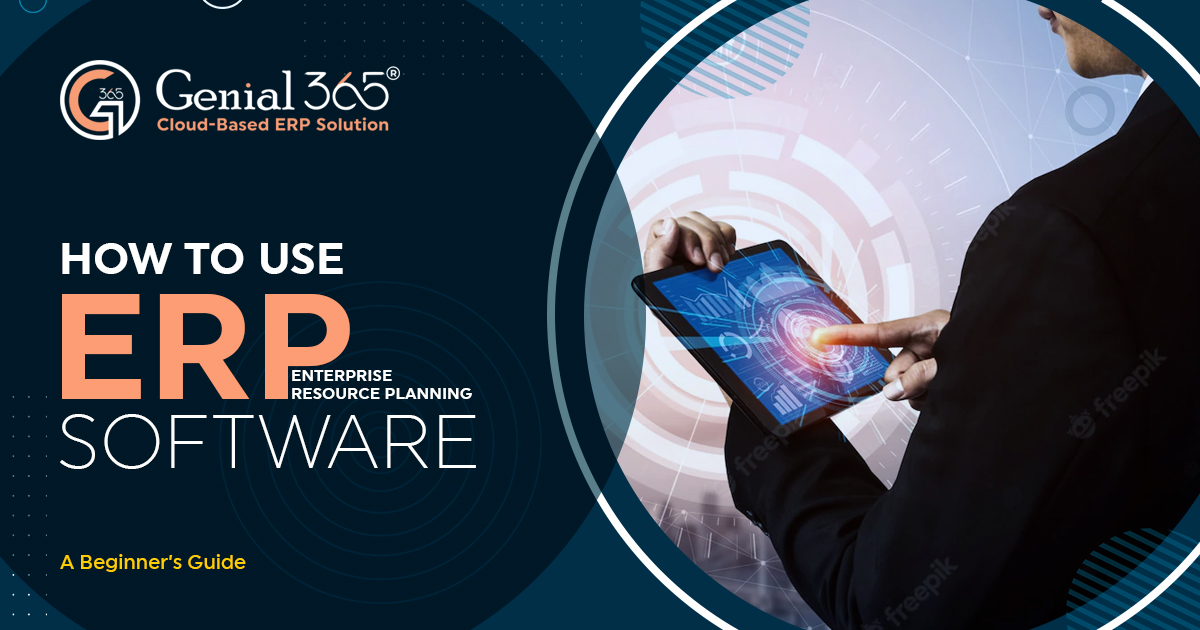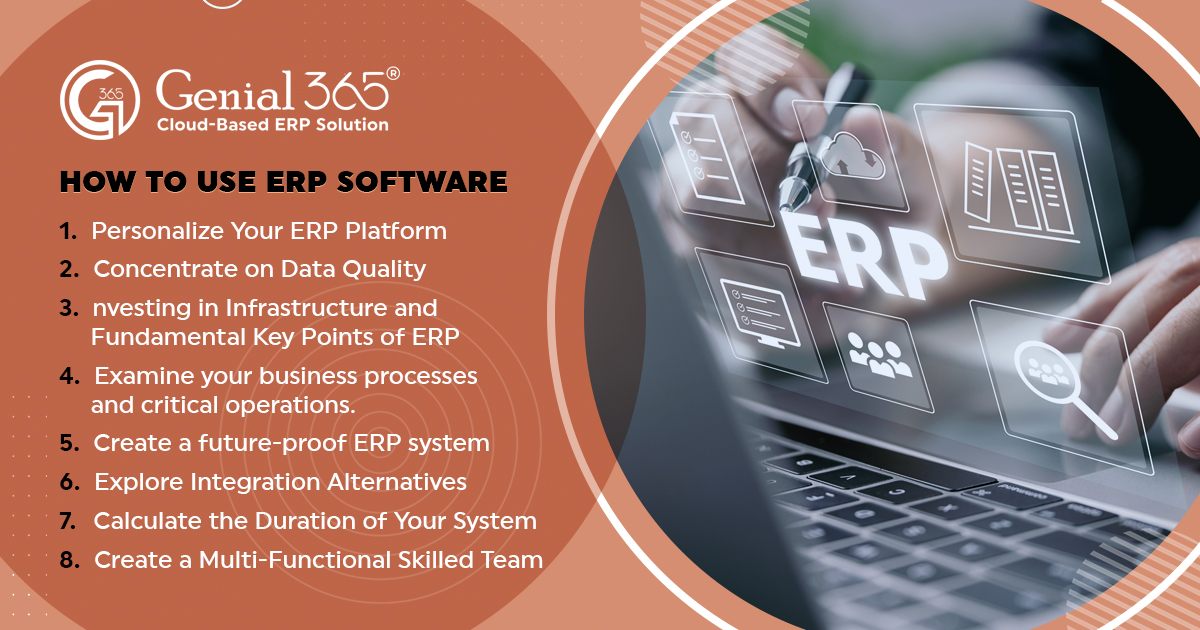
ERP is an abbreviation for "enterprise resource planning." ERP Solution is a business management solution that assists entrepreneurs in managing many critical components of their business. These components include accounting, customer relationship management (CRM), and procurement. The primary and foremost goal of an ERP solution is to consolidate all aspects of a business into a single, centralized database. Furthermore, it also streamlines procedures via a user-friendly application.
Upon successful implementation, ERP product will improve workflow and automate business operations. It will also minimize redundancies and provide everyone in the organization with accurate, up-to-date, and full data. However, for the development of chemical companies, it is critical to select a system that is suited to the industry's specific requirements. Many systems do not provide out-of-the-box manufacturing functions. It's also critical to select an integrated ERP system with all modules and features built to communicate with one another. Read our comprehensive guide to discover the use of integrated ERP software.
There are three types of ERP implementations. These systems are on-premise, hybrid, or cloud-based. Each ERP installation system has its own set of advantages and disadvantages.
You can set up and manage an on-premise ERP software system on your own servers at locations that you control. It also gives you the control and security of using your own IT infrastructure. As well, it assists in the connection of your employees, systems, and procedures.
On-premise ERPs are simpler to configure and adapt to your individual business requirements. They are perfect for companies that need to encrypt and monitor system data. Furthermore, for your daily business procedures, you can also require specific integration with other systems. You will also require dedicated IT workers to maintain your applications and servers.
In contrast to on-premise solutions, this is an ERP software solution deployed on a cloud computing platform. It enables enterprises to gain access to services over the internet. Vendors host cloud ERP software and make it available to organizations. In addition, this also eliminates disadvantages such as upfront license expenses.
A hybrid ERP suite, often known as a two-tier model ERP suite, combines on-premise and cloud ERP operations and features. It is a multi-sourced, modular ERP program for modern digital organizations. A two-tier structure is a hybrid ERP design that includes on-premises ERP capabilities as well as cloud-based ERP apps. Your company can also handle corporate tasks with its current on-premises ERP system and add cloud ERP software to serve minor business divisions.
● Accounting and financial administration
● Customer Service Management (CRM)
● Artificial intelligence (AI) and business intelligence (BI) (AI)
● Human Capital (HR)
● Market analysis and planning
● Inventory control
● Management of the supply chain
● Project administration
● production
● Wireless barcode scanning
● Management of price changes
● system for computerized maintenance management (CMMS).
● Unit conversions are performed automatically.
● Quality control
● Management of laboratories, recipes, and formulas

Purchasing an ERP system is a significant commitment for any business, so you must make the most of it. ERP systems, when fully employed, increase efficiency and quality, reduce expenses and errors, and improve performance. It also enhances the production and profitability of your organization.
Mostly, ERP software is designed and structured to serve all types of enterprises. Implementing an out-of-the-box strategy that addresses your company's demands is one method to get the benefits of ERP software. Ask your ERP solution provider to assist you in customizing your system for the best outcomes. You might also expect changes such as deleting irrelevant fields, turning particular aspects on or off, adding essential fields, and many more. Furthermore, you can also modify your ERP platform to a lesser extent by using extensions and plug-ins. Inquire with your ERP supplier about the opportunities for connecting to other programs or installing specialist plugins.
Your ERP system also assists you in managing data flow. It also tells you why, where, when, and how data will be entered. This data must be rich, reliable, and easily available; otherwise, it is useless. Spend some time developing your data input standards. You should also spend time on naming conventions and how to manage the document configuration. Ensure that everyone in the organization has visibility into data best practices that are consistent throughout departments. Additionally, use data inspections and batch cleansing to perform periodic spot checks to ensure that requirements are being met. Cleaning wrong data can also take many hours, so it's far preferable to get it properly the first time.
It may also appear childish to focus on whether users enter the day or month first in the calendar box. Many staff are unfamiliar with spreadsheets. They don't even know how to impose a fundamental daily routine. Your tune can also alter when you convert to an Excel sheet. Sometimes, you can't even simply distinguish between actions completed in February and actions conducted on the second of each month.
During training or implementation, most employees do not pay attention to the training. They believe that through working, they will be able to cover everything. Never underestimate the importance of training your staff and other end users of your ERP solution. Trained users make the most of any software solution. They can also adapt everything rapidly to updates and changes. Furthermore, a thorough understanding of the ERP software can assist them in making educated business decisions more swiftly. Many organizations wrongly assume that basic training is sufficient to get their users up and running. As ERP systems evolve, so should your workers and users. Working with your ERP vendor to establish continuing training sessions allows users to expand their knowledge as the software evolves
It is necessary for businesses to understand their critical and crucial activities. Many organizations are unaware of their critical requirements. When deciding on the finest ERP system, it is also critical to do a process evaluation of your business activities. This allows you to identify which processes need to be improved so that you can analyze them after the ERP deployment to determine ROI. This stage or level can also assist you in exploring which business operations require the most attention. It will also influence the ERP software you purchase.
Hold a meeting or a panel discussion to address these concerns.
● Do you require anything with a solid accounting solution?
● Or do you prefer to concentrate on human resources?
If you answered "all of the above," you know you should look for a more expensive option that can cover all of the bases.
ERP systems, like any other software area, are evolving on a daily basis. In upcoming years, the ERP software you use today may look very different. Always inquire with the ERP vendor about their future plans.
● Inquire with the ERP vendor about their future goals. How much money do they put into research and innovation?
● What other features do they intend to include?
● What other features do they intend to include? How frequently do they bring out updates?
A decent ERP system will not be a one-dimensional tower. It will be a growing and changing environment that adapts to new business technology breakthroughs.
ERP connectors can also help you increase the operational efficiency of your firm by integrating tools into your toolkit. Integrations connect two separate apps and enable them to communicate with each other. Some integrations are fairly deep, allowing information entered in one to be accessible smoothly in another. Production and development, customer relations, logistics management, and inventory management systems are examples of common ERP system connections.
The ROI of your ERP system evaluates whether it was a profitable business decision. It varies throughout time, so you may also need to change and track your objectives from period to period. The ideal system should also provide excellent value for money and a high return on investment.
Establish a team of deployment experts from several departments to ensure a seamless procedure. As a result, this ensures that all essential areas of your organization are addressed. Furthermore, it also assists in gathering feedback from the many teams that will be utilizing the system. At some point, all organizational functions will be linked into your ERP system. Ensure that all departments are involved in the deployment process.
Many firms utilize ERP software, but not all of them utilize its full potential. Understanding the capabilities and functionalities of your chosen solution can assist you in making the most of it. Your ERP system is a critical instrument for your company's success. It also allows you to increase efficiency, minimize errors, enhance productivity, and eventually improve profitability. Many managers make the error of ignoring critical issues. They mostly ignore things like forming a diverse implementation team, bringing in senior management, ignoring training, ignoring system upgrades, and failing to prepare for the future. Understanding how your ERP system works will help you get the most out of it, but how your workers and users use it will determine its value. Though expensive, the correct ERP system should provide you with an exceptional ROI in the long term.